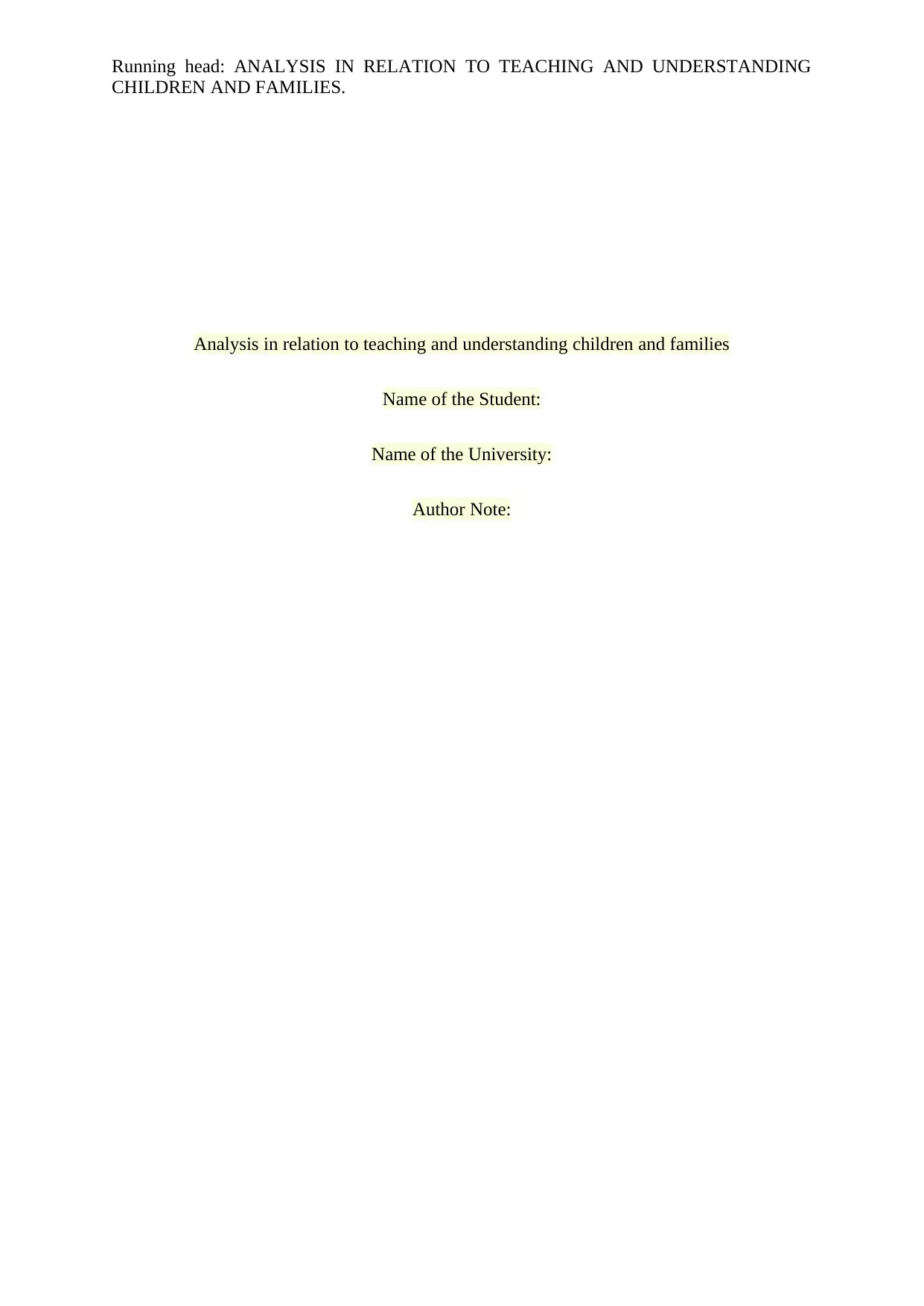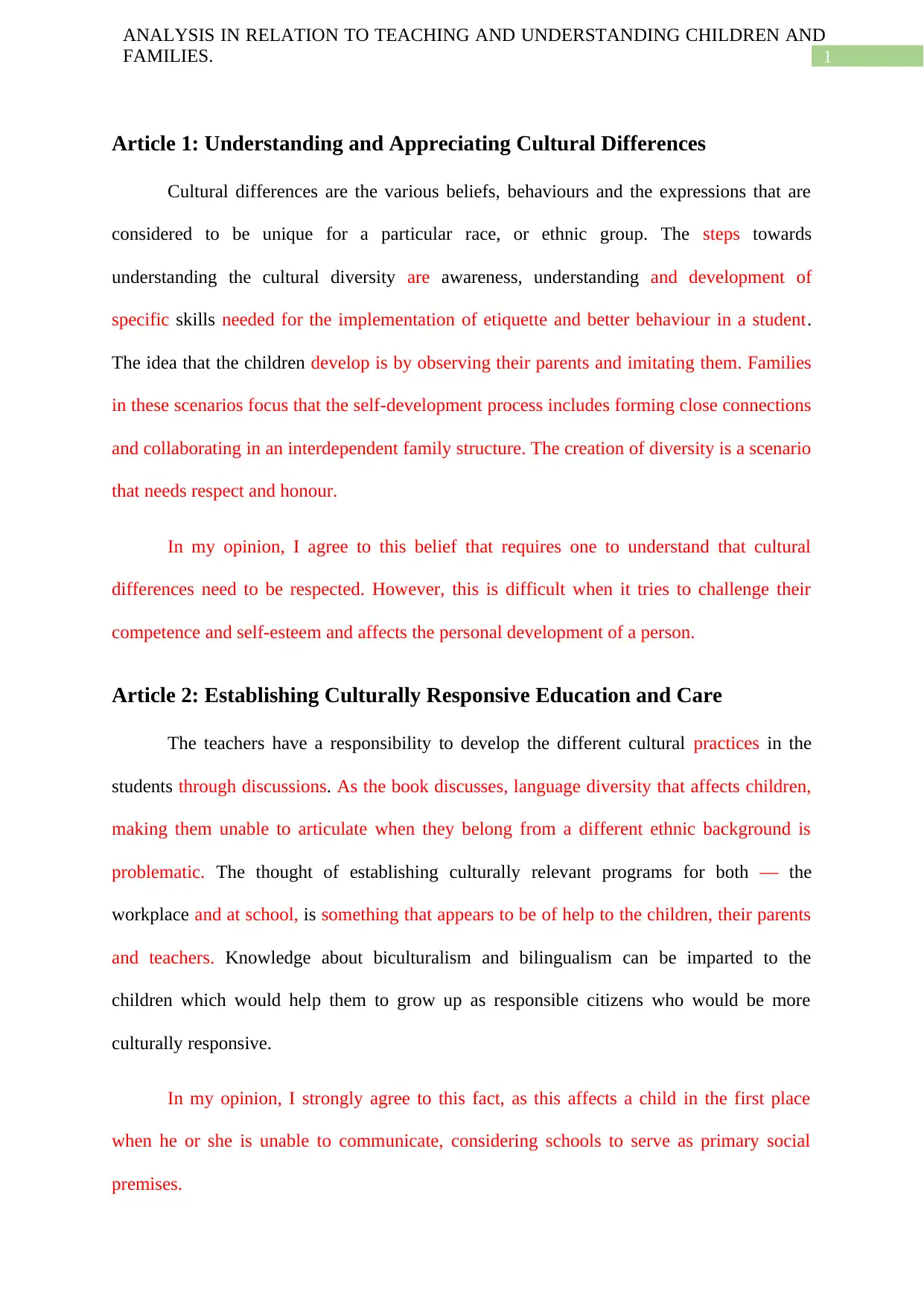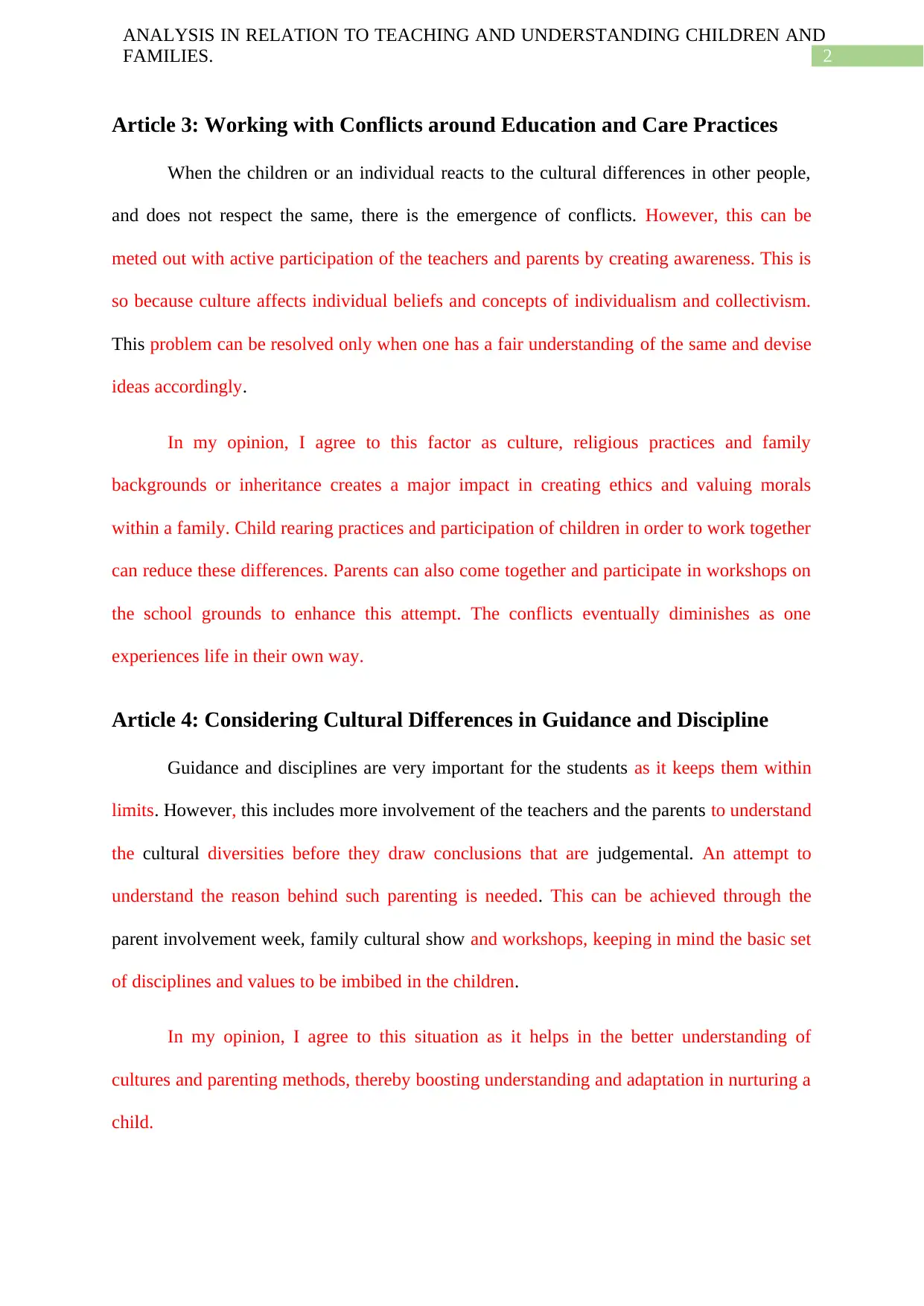Analysis of Teaching and Understanding Children and Families Report
VerifiedAdded on 2022/10/12
|3
|673
|382
Report
AI Summary
This report provides an analysis of teaching and understanding children and families, drawing on four articles that explore key themes in education. The report begins by examining the significance of cultural differences in the classroom, emphasizing the need for educators to understand and respect diverse backgrounds. It then discusses the importance of establishing culturally responsive education and care, highlighting the role of teachers in promoting cultural understanding. The report also addresses conflicts that may arise due to cultural differences, suggesting strategies for resolving these issues through collaboration between teachers and parents. Finally, it explores the role of guidance and discipline in a culturally sensitive manner, advocating for an understanding of diverse parenting styles. The report's conclusion underscores the importance of educators recognizing and adapting to the unique cultural contexts of their students to create an inclusive and effective learning environment.
1 out of 3










![[object Object]](/_next/static/media/star-bottom.7253800d.svg)